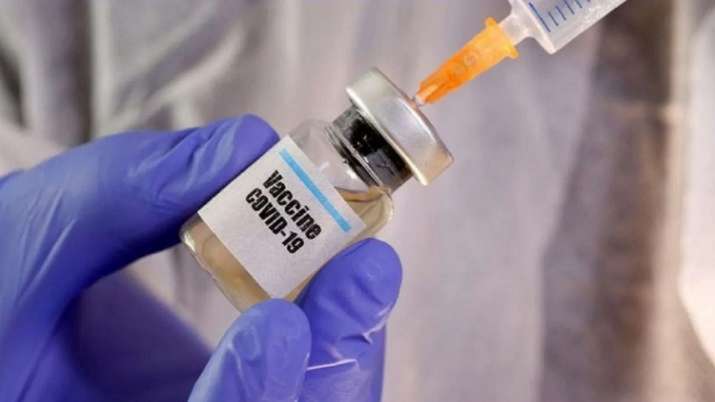
The WHO has urged rich countries to stop the booster shot and make vaccines available for poorer countries. (representative image)
Rich countries with large supplies of coronavirus vaccines should avoid giving booster shots until the end of the year and provide doses for poor countries, the head of the World Health Organization said on Wednesday. On boosters that have been largely ignored.
WHO Director-General Tedros Adhanom Ghebreyesus also said he was “shocked” on Tuesday after hearing comments from a top union of drugmakers that booster shots for people in countries with good supplies and for the first time in poor countries were both Vaccine supply is sufficient. that is lacking. He said that this has happened before.
“I will not be silent when the companies and countries that control the global supply of vaccines think that the world’s poor should be satisfied with leftovers,” he told a news conference.
“Since manufacturers have preferred or legally bound bilateral deals with wealthy countries willing to pay top dollar, low-income countries have been denied the tools to protect their people.”
Tedros had previously called for a moratorium on the booster until the end of September.
But wealthy countries – including Britain, Denmark, France, Greece, Germany and Spain – have begun plans to offer their third shots of the two-dose vaccine to vulnerable people, such as the elderly or those with compromised immune systems. or are contemplating.
Israel is providing a third dose to a wide range of people who had already received a full two-dose regimen months ago.
And last month, US health officials recommended that all Americans get boosters to increase their protection amid evidence that the effectiveness of vaccines is falling. WHO officials emphasize that the scientific justification for the booster is unclear.
Tedros acknowledged that a third dose may be necessary for at-risk groups, but added: “We don’t want to see widespread use of boosters for healthy people who have been fully vaccinated.”
US health officials are continuing to assess the science and usefulness of the booster, and there are growing signs that the US may miss the Biden administration’s September 20 target date for a wider rollout of additional shots for vaccinated people.
The WHO chief said he had received a message of “clear support” from health ministers at a meeting of the influential grouping of 20 countries this week, which has a commitment to help achieve the WHO’s goal that all countries reach at least 40 percent of their Vaccinate people. year’s end.
Tedros said, “A month ago, I called for a global moratorium on booster doses, at least until the end of September, to prioritize vaccination to most at-risk people around the world who have not yet got their first dose.” Found it.”
“The global situation has changed very little since then.”
“So today, I’m calling for an extension of the moratorium until at least the end of the year so that every country can vaccinate at least 40 percent of its population,” he said.
read also | India’s COVID vaccination coverage crosses 71 crore milestone
WHO says 5.5 billion coronavirus vaccine doses have been given so far, but 80 percent of them have been given to high- and middle-income countries.
Tedros said rich countries have also offered to donate 1 billion doses to other countries, but less than 15 percent of those doses are “physical.”
He said manufacturers have resolved to prioritize the UN-backed COVAX program, which aims to get vaccines to the world’s most needy people – no matter how wealthy the country.
“We don’t want any more promises,” he said. We just want vaccines,” said the WHO chief.
Earlier on Wednesday, COVAX managers lowered their target of sending doses again this year, estimating that about 1.4 billion doses will be available through the program by the end of the year — up from about 1.8 billion previously. He originally expected to send 2 billion doses this year.
Gavi, the Vaccine Alliance, which co-operates the program, said COVAX has faced several setbacks including an export ban from hard-hit India – a major producer of vaccines – as well as regulatory hurdles for some vaccine candidates. and the hassle of construction elsewhere.
But it also said deliveries are growing strongly, and another 1.1 billion doses are expected to be available through the program by the end of the year, up from 330 million so far. Most of those doses have gone to or are destined for poor countries.
The International Federation of Pharmaceutical Manufacturers and Associations said on Tuesday that about 1.5 billion COVID-19 vaccine doses are now being produced every month, and cited estimates that a total of 12 billion will be produced by the end of the year.
Dr. Bruce Aylward, a top adviser to Tedros, acknowledged that “some countries are moving forward with decisions” to widely administer the booster, but that the WHO’s call for a moratorium “makes a real difference.”
He said some countries – which he did not identify – have approached the WHO to see if the booster policies could be delayed. But the WHO’s first call for a postponement through September is not believed to have corrected the gap imbalance in access to vaccines.
“(O) your role is to make sure we put forth the strongest possible rationale and path out of this pandemic – and the way out of this is to have a postponement and extend it,” Aylward said.
“Because last time we called for it, the equity gap has become greater, reducing the amount of vaccine available to low-income countries.
read also | Kerala Covid cases cross 30,000 mark again
.